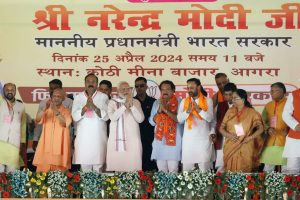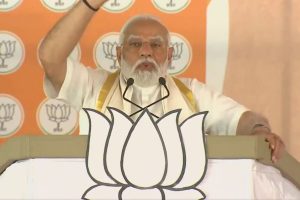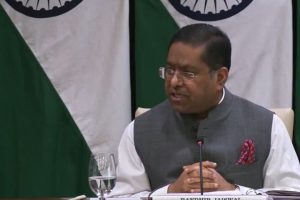Myanmar’s military (Tatmadaw), which has been in power for as long as it has, has decidedly entrenched its authority further still with Monday’s decision to extend the emergency in the country by another six months in preparation for an election ~ which may yet be spurious ~ scheduled for next year. Myanmar may be a thoroughly unsettled part of the world for a long while yet, even if a shambolic democratic regime is put in place. It would be pertinent to recall that the military had seized power on February 1 last year from the elected government of Aung San Suu Kyi. It had alleged fraud in the general election of November 2020, which Suu Kyi’s National League for Democracy (NLD) had won with a landslide. At another remove, the performance of the militarybacked party was pedestrian.
There was no evidence of substantive irregularities on the part of the NLD. The army takeover was greeted with violent protests in different parts of the beleaguered nation. Security forces used deadly force to disperse protestors, prompting armed resistance by pro-democracy groups. The escalation of violence and the renewed incarceration of Suu Kyi has provoked the United Nations to describe the situation as a “civil war”, indeed a humanitarian crisis that threatens to eclipse any the nation has faced. The extension of the emergency would suggest that the junta’s rule has arguably worsened the internal situation, where civil strife rages barely an inch beneath relentless tension and brutal suppression of the democratic voice. Senior General Min Aungh Hlaing, the head of the ruling State Administration Council, has sought to justify the extension of the emergency saying time is required to prepare for fresh elections.
His strained claim is unlikely to be generally accepted, specifically “to continue working to return the country to the path of peaceful and disciplined multi-party democratic system and to hold a multiparty democratic election”. Theoretically and from the academic perspective, the contrived argument may not be faulted. And yet the decidedly ulterior motive of the military is palpable. There is considerable doubt in Myanmar about the fairness of the proposed tryst with democracy. NLD leaders are by and large in jail, and fears that the party might be disbanded by the pro-military courts are dangerously real.
Quirky indeed is Min Aung Hlaing’s argument that terrorists and people and organizations supporting them are “committed to the utter devastation of Myanmar, instead of trying to nurture democracy”. Nor for that matter will many readily concur with Min Aung Hlaing’s argument that the military had tried its “utmost to discharge its responsibilities since it seized power”. UN experts and rights groups are more critical of government repression, which is marked by arbitrary arrests and killings, torture and military “sweeps” that include air attacks and burning down of entire villages. The extended period of the emergency might witness more of the same.











